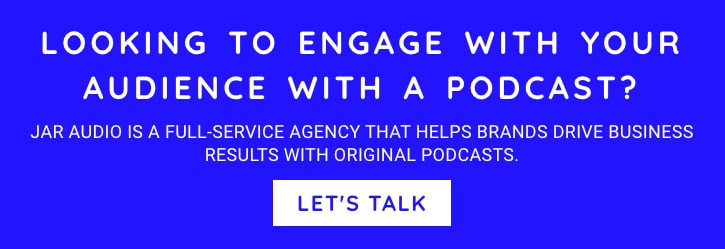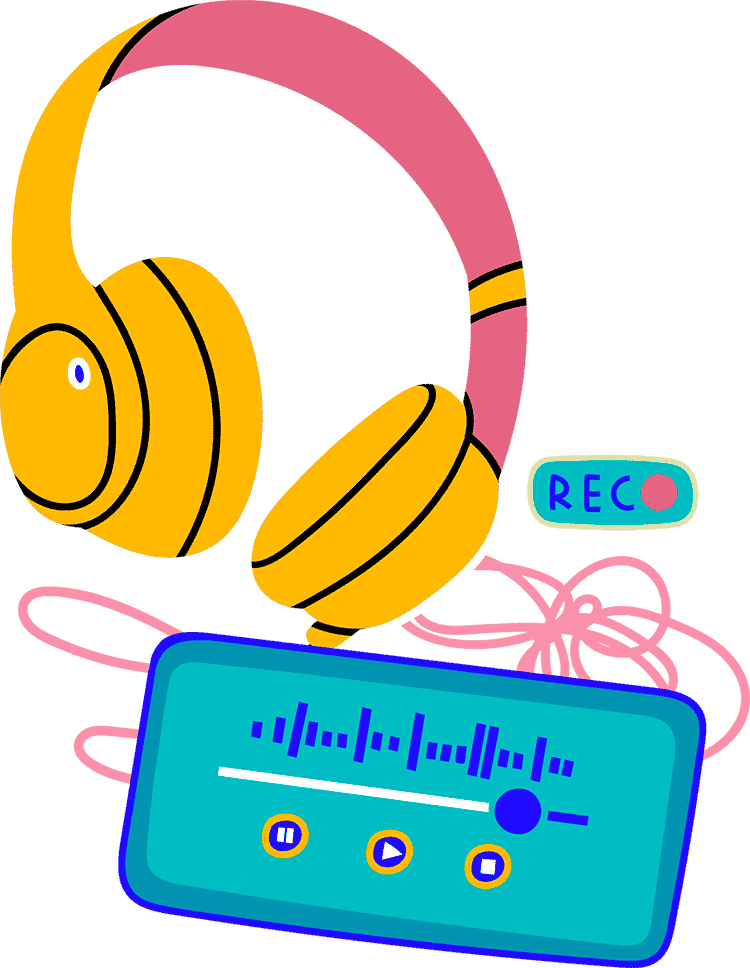Understanding the ROI of Podcasts: Strategic Insights for Marketers
For the latest on Branded Podcast ROI check out this post!
Podcast ROI is a critical metric for CMOs, senior marketers, senior brand leaders, and content marketers. As the landscape of digital marketing evolves, podcasts have emerged as a powerful medium for brands to deepen engagement with their audience. But what is the ROI of a podcast, and how can you measure it effectively to justify your marketing investments? This guide dives into the different approaches to quantifying the success of your branded podcast.
Table of Contents
- Why you should be reading this guide
- Not all ROI is created equal
- Approach 1: Financial ROI
- Approach 2: Brand Performance
- Approach 3: Online Performance
- Approach 4: Podcast Performance
1. Why You Should Be Reading This Guide
As a senior marketer, you understand the importance of every marketing dollar spent. A branded podcast can offer significant ROI, but quantifying this can be challenging. Whether you’re convincing a CEO, a CFO, or a client, understanding the ROI of brand podcasts is essential. This guide provides you with the necessary tools and metrics to measure the success of your podcast, ensuring you can make informed decisions about your audio content strategy.
2. Not All ROI Is Created Equal
The ROI of a podcast can vary based on the goals of your brand. Whether your focus is on increasing revenue, enhancing brand awareness, or driving strategic engagements, the approach to measuring podcast ROI needs to be aligned with these goals.
Financial ROI: This includes direct sales from products mentioned in the podcast or leads generated through call-to-action segments within the episodes.
Brand Performance: Measuring how the podcast has affected brand awareness, customer engagement, and overall brand sentiment.
Online Performance: Looking at the traffic, lead generation, and conversion rates from your brand’s website linked to podcast content.
Podcast Performance: Analyzing listener engagement, subscription growth, and episode reach.
3. Approach 1: Financial ROI
To measure the financial ROI of branded podcasts, focus on lead generation and direct sales rather than traditional advertising revenue. Since the content is already rich with brand messaging, additional advertising may detract from the user experience. Instead, use episodes to subtly encourage product trials or visits to your website, where listeners can convert into customers.
4. Approach 2: Brand Performance
- Engagement: Podcasts create a unique, intimate connection with listeners, often leading to higher engagement rates compared to other content forms.
- Brand Awareness: A well-executed podcast can significantly boost your brand’s visibility and audience recall.
- Voice of the Customer and Brand Sentiment: Analyzing listener feedback and sentiment can provide insights into how your brand is perceived in the market.
5. Approach 3: Online Performance
Your podcast can drive significant traffic to your website, improving SEO and increasing lead conversions. Track specific URLs mentioned in episodes, monitor traffic spikes on release days, and observe how podcast listeners interact differently on your site compared to other visitors.
6. Approach 4: Podcast Performance
Measure the direct impact of your podcast through metrics like episode engagement, unique subscribers, and overall reach. High engagement and positive reviews can indicate a successful podcast that resonates well with your target audience.
5 Takeaways:
- Podcast ROI is Multi-faceted: Understanding the return on investment (ROI) from a branded podcast involves looking at multiple dimensions including financial gains, brand performance, online performance, and direct podcast metrics.
- Align ROI Metrics with Brand Goals: It’s crucial to align the measurement of a podcast’s ROI with your brand’s specific goals, whether it’s increasing direct sales, enhancing brand awareness, or engaging with the audience more effectively.
- Financial ROI Beyond Advertising: Instead of traditional advertising, the financial ROI of podcasts should focus on generating leads and driving sales through direct calls to action within the podcast content.
- Brand and Online Performance: A successful podcast can significantly enhance your brand’s online presence by driving traffic to your website, improving SEO, and increasing social media engagement.
- Engagement and Listener Metrics are Key: Evaluating the success of a podcast also involves analyzing listener engagement metrics like episode retention, subscriber growth, and interaction through reviews and social shares.
Roger transitioned from a 22 year career in advertising account management to co-founding JAR, a podcast podcast production agency. As CEO of JAR, he propels the company’s growth by prioritizing audience engagement and podcast marketing. Under his guidance, JAR flourishes with a global clientele, aiming to broaden its reach across North America and revolutionize brand connections through immersive storytelling.



